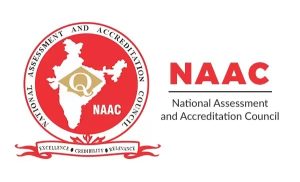Focus group discussion on “Transnational Corruption” with special reference to UK Bribery Act & Prevention of Corruption Act (PCA) of India organized by Transparency International India (TII) in collaboration with CTAG, NLUD, Delhi on 26 October at the University. The panel for the discussion was consisted of Mr. PS Bawa, Chairperson, Transparency International India; Mr Navneet Wasan, Former Addl Director, National Investigation Agency, Prof Madhu Bhalla, Professor JNU and Dr JS Mann, CTAG, NLU Delhi. Participants for the discussion included experts from NGOs, TII, Activists, teachers and students from NLU Delhi.
Dr. JS Mann, started with the welcome address. He emphasized that Prevention, criminalization of different facets of corruption (both private and public institutions) could be the starting steps to achieve this utopian goal. He also raised the point of employing vicarious liability as the bribe givers include private individual but not the companies which is a loophole in the system as it gives the escape route. He discussed the international conventions, treaties, and declarations like UNCAC and OECD in this respect. He emphasises on the model used by Indonesia and Hong Kong to counter corruption which includes making special enforcement machinery for election process, private sector, et al. For him, the present statutory instrument is not enough and ergo, more research work is needed.
Shri Navneet Rajan Wasan, the keynote speaker followed him and kicked off his speech with talking about corruption that in earlier times, the scope of corruption was bound by national boundaries but with the passage of time and invent of globalization, it has cut across any national boundary and turned into a global menace. He talked about the problem of choice of law as different legal system have different legal provisions to counter corruption and choice of law is a one big hurdle in countering the same.
Shri PS Bawa gave the special address to the gathering where he started with the transnational crimes of corporations. He discussed an instance of Simon’s case where plea bargaining was carried out between Germany and USA for a corruption case. He highlighted the fact that there is no strong mechanism to deal with the business corruptions. He discussed the India’s history in respect of countering corruption as India ranks very poor on bribery list. He pointed out the importance of focusing on demand side of corruption as till now only public institutions are under scanner.
Prof. Madhu Bhalla, while summing up the group discussion and extending her vote of thanks on behalf of Transparency International India, she talked about the political economy of transnational corporations. She raised the pertinent questions like why transnational corporation law are required and why was it made in very first place? She also talked about the difference between the rich and the poor which is one of the principle reason for corruption. She also emphasised on the importance of not just copy cut pasting while framing Indian laws from Western counterparts but to make as per the our own unique needs for which research work is needed. She raised the corruption malpractices that takes place during electoral process. She hailed the importance of interpretation of laws broadly, in order to make laws unlike toothless tiger. She raised the point that in order to counter corruption, we need to work on the building blocks at the very ground level. She also raised the conflict of interest which is the major reason behind the failure of any anti-corruption laws. All the so more, at last, she highlighted the point that how social context of legislation is missing in India and we need to have a domestic foundation to counter this global menace of transnational corruption.





